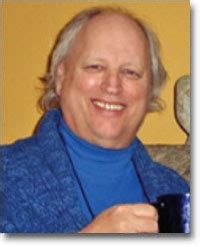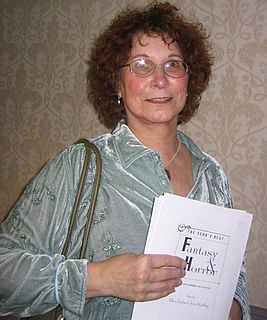Ein Zitat von Swami Vivekananda
Im Urzustand vor jeder Manifestation, als es keine Bewegung, sondern vollkommenes Gleichgewicht gab, war diese Prakriti unzerstörbar, weil Zerfall oder Tod aus Instabilität oder Veränderung resultieren.
Verwandte Zitate
Wer sich in Seine Hände begibt, wird vollkommen werden, so wie Er vollkommen ist – vollkommen in Liebe, Weisheit, Freude, Schönheit, Gesundheit und Unsterblichkeit. Die Veränderung wird in diesem Leben nicht abgeschlossen sein, denn der Tod ist ein wichtiger Teil der Behandlung. Wie weit die Veränderung vor dem Tod bei einem bestimmten Christen fortgeschritten sein wird, ist ungewiss.
Wir müssen uns als Co-Manifestatoren sehen – als Partner bei der Manifestation –, die alle am Urakt der Entfaltung und des Auftauchens beteiligt sind. Jeder Manifestationsakt kann auf ein bestimmtes Ergebnis ausgerichtet sein, trägt aber auch zur größeren Manifestation der Ganzheit, Liebe, Mitgefühl und Kreativität der Urquelle bei, aus der wir alle stammen.
Jedes kleine bisschen, jedes Atom im Universum befindet sich in einem ständigen Zustand der Veränderung und Bewegung, aber das Universum als Ganzes ist unveränderlich, weil Bewegung oder Veränderung eine relative Sache ist; Wir können uns etwas Bewegtes nur im Vergleich zu etwas vorstellen, das sich nicht bewegt.
Weißt du, ich liebe Stop-Motion. Ich habe fast alle Animationsstile gemacht: Ich war ein 2D-Animator. Ich habe Ausschnittanimationen gemacht. Ich habe vor ein paar Jahren einen CG-Kurzfilm gemacht, „Moongirl“, für kleine Kinder. Stop-Motion ist das, worauf ich immer wieder zurückkomme, weil es einen ursprünglichen Charakter hat. Es kann nie perfekt sein.
Diese neue, bisher unbekannte Kraft ist der organischen und anorganischen Natur gemeinsam. Ich glaube nicht, dass dies eine Kraft ist, die völlig unabhängig von den elektrochemischen Affinitäten der Materie ist; Ich glaube im Gegenteil, dass es sich nur um eine neue Manifestation handelt, aber da wir ihren Zusammenhang und ihre gegenseitige Abhängigkeit nicht erkennen können, wird es einfacher sein, sie mit einem separaten Namen zu bezeichnen. Ich werde diese Kraft katalytische Kraft nennen. Ebenso werde ich die Zersetzung von Körpern durch diese Kraft Katalyse nennen, wie man die Zersetzung von Körpern durch chemische Affinitätsanalyse bezeichnet.
Alle Handlungen von Sattva, einer Abwandlung von Prakriti, die sich durch Licht und Glück auszeichnet, sind für die Seele. Wenn Sattva frei von Egoismus ist und mit der reinen Intelligenz von Purusha erleuchtet ist, wird er der Egozentriker genannt, weil er in diesem Zustand von allen Beziehungen unabhängig wird.
Warum erzeugt der Tod Angst? Weil der Tod eine Veränderung bedeutete, eine Veränderung, die größer war als je zuvor, und weil der Tod tatsächlich ein Spiegel war, der uns dazu brachte, uns selbst wie nie zuvor zu sehen. Ein Spiegel, den wir abdecken sollten, so wie die Menschen früher aus Angst vor etwas Bösem den Spiegel abdeckten, wenn jemand starb. Denn trotz all unserer Fürsorge und unseres Schmerzes für die Verstorbenen waren es auch wir selbst, für die wir den Schmerz empfanden. Vielleicht vor allem wir selbst.




































